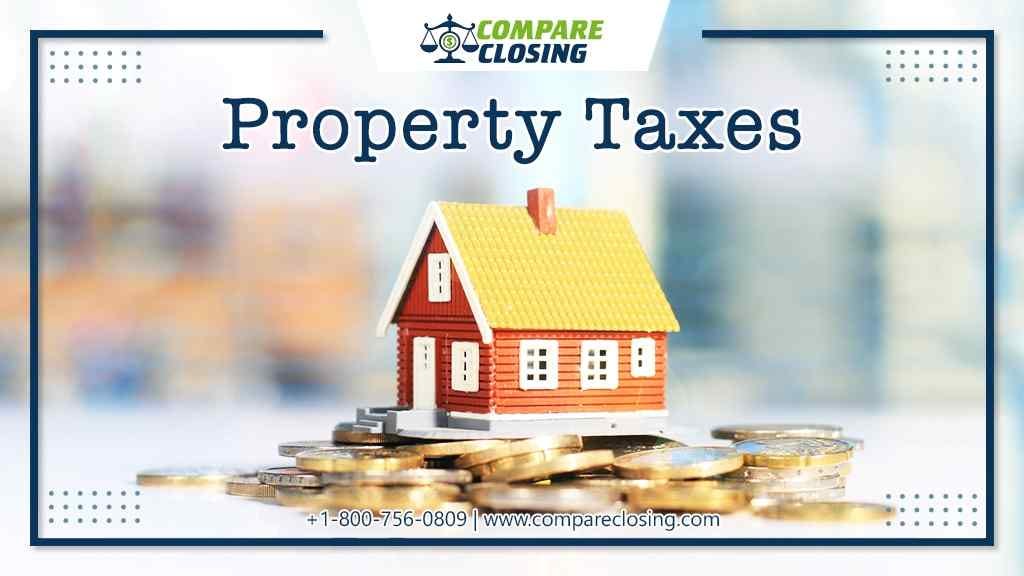
About Property Taxes
If you are planning to buy a new home, you need to know the costs that are going to be applied as a homeowner to own the property.
One of the costs that you need to pay probably lifelong till the time you won the house is property taxes.
In this post, we will learn what are property taxes and how do they work.
What is Property Tax and its Purpose?
Property taxes are the amount that is levied upon any real estate property which the homeowner has to pay annually to the government, or Municipal Corporation of the area.
Property taxes are used as primary means for funding local governments which are used to pay for the necessary public services.
The lion’s share of property tax revenue is typically used to fund public schools. In fact, according to renowned sources, school districts received eighty-three percent of their source revenue from property taxes.
This means, when it comes to local funding for public schools, property taxes make up a vast majority of it.
While property taxes are most known for funding public schools they often contribute towards many other things like public safety including police, EMTs, firefighters, sanitation, maintenance, and a plethora of other things.
Important Property Tax Terms
Now that we have understood what are property taxes and their purpose, let us know about some of the property tax terms that are integral to understanding.
Market Value Vs Assessed Value:
It is the most probable price which a property would sell for in an open market. The assessed value on the other hand is the value assigned to the property from which the tax rate is taken.
This is an important distinction to make is because the assessed value would not always be the same number as the market value.
Assessment Ratio:
The reason for this is something known as the assessment ratio. It is a percentage of the determined market value by which the property tax is calculated.
The percentage varies widely depending on the area that you live in. Some states have an assessment ratio of one hundred percent, while in some states it can be as low as ten percent, for example in the state of Mississippi.
This doesn’t mean that property taxes are any lower in Mississippi than elsewhere in the country, it only means that they use a smaller number for determining tax liability.
In some places, there is also no cap on how much property taxes can go up each year. So even if the assessed value goes high by a very large percentage in a given year the taxable value cannot exceed a certain threshold.
This is done to keep property taxes from going up by exorbitant amounts in years where property values go up significantly.
Depending on where you live, there may be other freedom that contributes to a lower taxable value or tax rate as well.
Homestead Exemption:
One such exemption that is very common is the homestead exemption. While a homestead exemption is a legal provision that has various roles in homeownership.
The homestead exemption in part offers a reduction in property taxes for a primary residence. Its application will vary from state to state.
Your trusted real estate agent would be able to provide you with more accurate information about the homestead exemption in your state so that you know how much reduction you will get if you purchase a primary residence.
Millage Rate:
The last thing to pay attention to is the term known as the millage rate that you may come across if you go looking for property tax rates in your area.
The tax rate for a particular jurisdiction can be expressed as a percentage that you likely know how to use.
However, you may find that your property tax rates in your area as expressed in mills, which is the tax payable for one thousand dollars of assessed value.
How Property Tax will Affect the Homeowner while buying a home?
It is crucial to understand the relevance and importance of property taxes when you are purchasing a home.
Believe it or not, property taxes can make hundreds of dollars of difference in your mortgage payment.
The lender in certain loan programs would require the property taxes to be paid as a part of your monthly mortgage payment prorated monthly for what is to be owed for the year.
Knowing this it is important to pay attention to the estimated property taxes on a particular home that you may be interested in so that you know how that will affect your mortgage payment.
Conclusion
The property taxes are not always required to be paid as part of your monthly mortgage payment.
With conventional loans with more than twenty percent down payment, you normally have the option to pay them in a lump sum when they become due instead if you prefer.
To get more information on the real estate taxes in your area get in touch with your real estate advisor and your trusted loan officer so that you can know more accurate information.
https://www.compareclosing.com/blog/what-is-property-taxes-in-real-estate/
Comments
Post a Comment